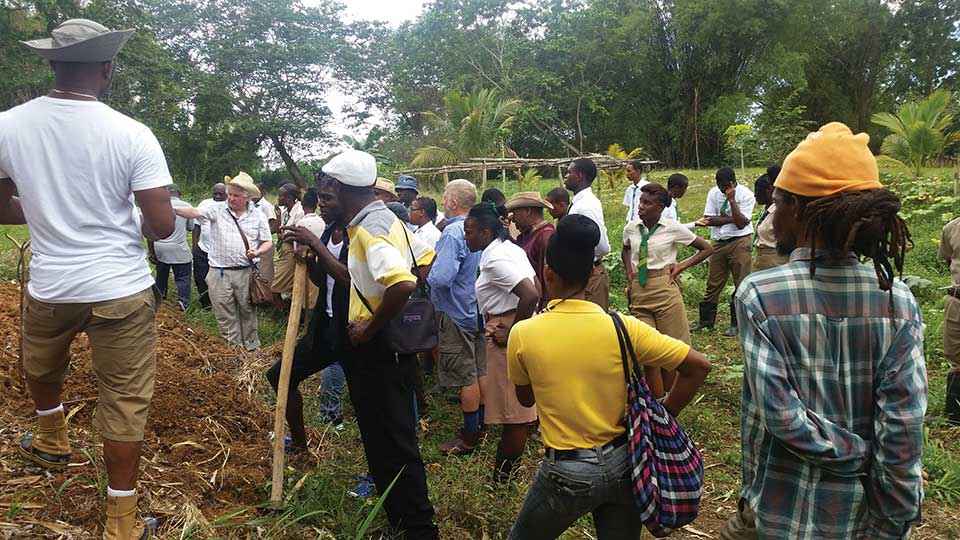Victorian Landcare Magazine - Winter 2017, Issue 69

Thirty years of Landcare has helped prepare Australian communities for climate change. Positive elements include Landcare’s multi-disciplinary ethos, can-do approach, devolved structure, mutual-support networks, technical education, systematic approach to ambitious regional and national projects, involvement in schools, employment of community coordinators, friendly internal collaboration and links to all tiers of government. The list of positives is long.
Since the Black Saturday bushfires in 2009 Landcare has also emerged as an economical and efficient tool to help communities recover from natural disasters including flood, fire, cyclones and rural plant and animal epidemics. In fact Landcare is so effective it should become part of Australia’s traditional municipal disaster-planning system.
People overseas have noticed the remarkable and empowering evolution of Landcare, in particular post-tsunami Japan, whose Landcare movement is emerging slowly but surely. Others include the South Pacific nations and the Philippines.
Australian Landcare International (ALI) started in 2007-08 with climate change high on its agenda. ALI runs a small grants program that has raised and distributed around $20,000 for 30 projects in 14 countries over the past four years.
ALI has also run training courses in Fiji and Jamaica, and ALI members recently trained coordinators and farmers in northern Zambia in marketing farm products, establishing Landcare networks and launching projects.
In February 2017, the Hon John Anderson AO, the newly appointed Chair of the Crawford Fund, said that Australia’s agricultural scientists will play a vital global role in improving world food supplies and land management.
ALI believes that this technical excellence must be accompanied by community Landcare campaigns to field-test research, inform and motivate farmer groups, build new marketing initiatives – often via social media – and sustain productivity gains and smallholder networks.
Rob Youl is the President of ALI.
"Since the Black Saturday bushfires in 2009 Landcare has also emerged as an economical and efficient tool to help communities recover from natural disasters including flood, fire, cyclones and rural plant and animal epidemics."